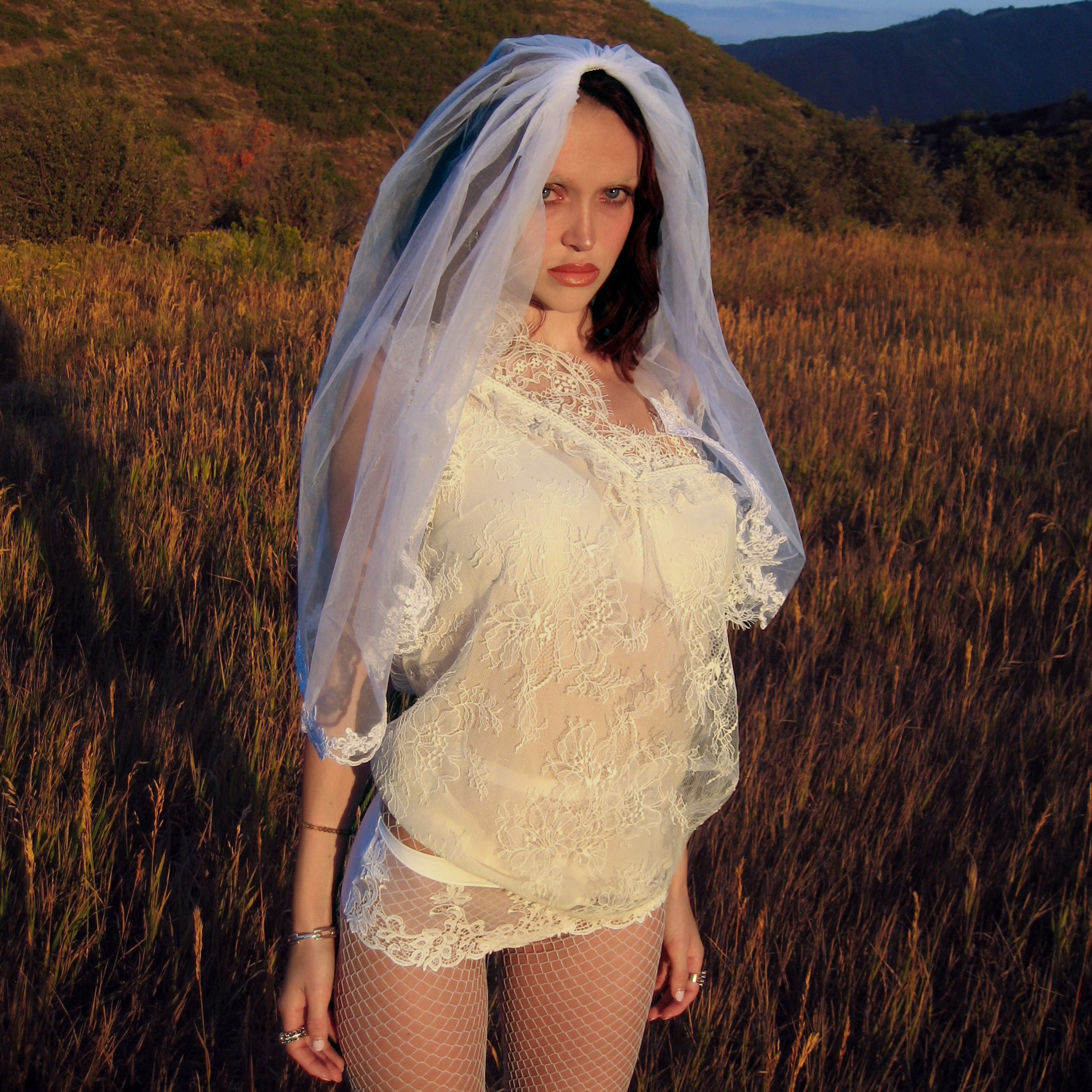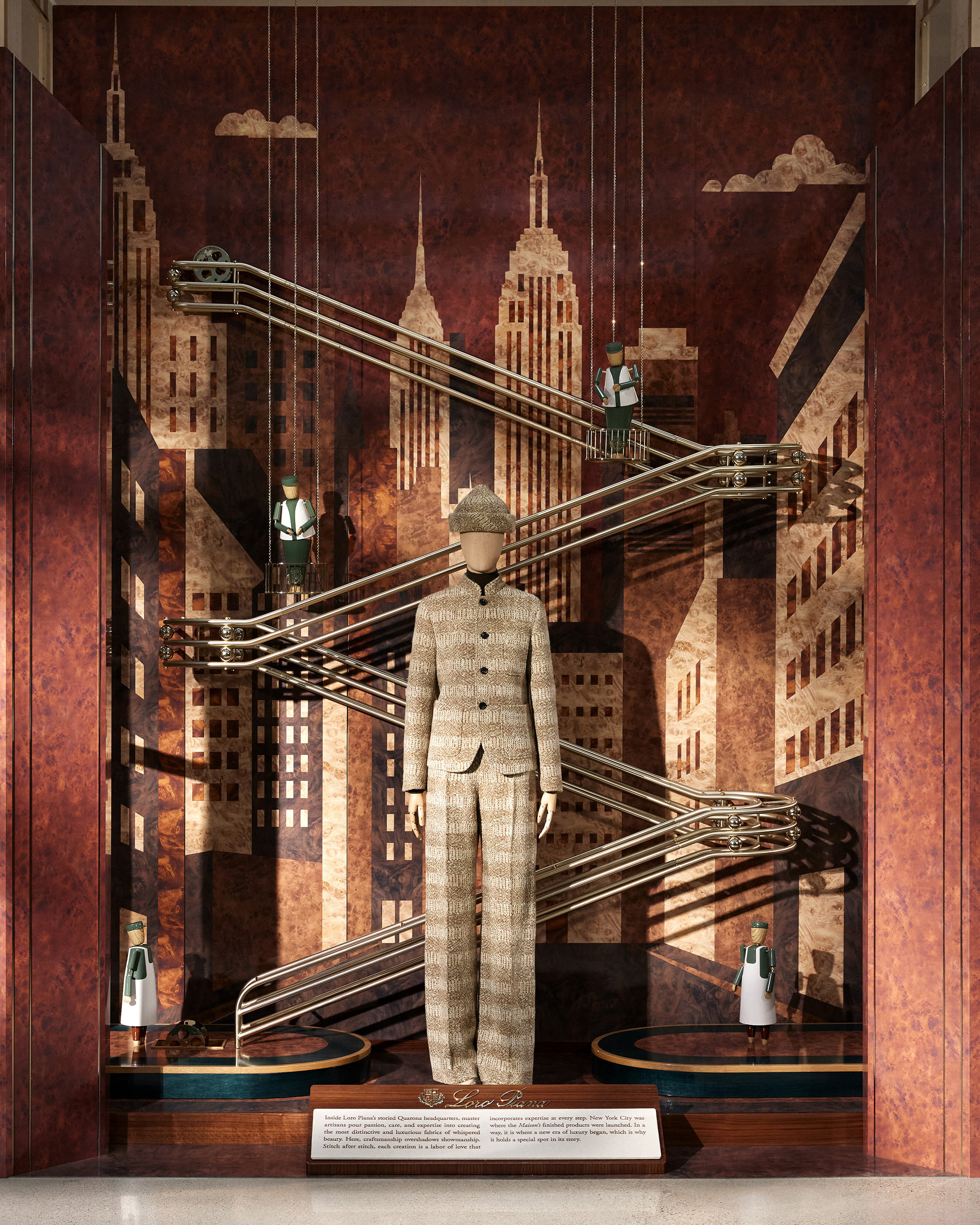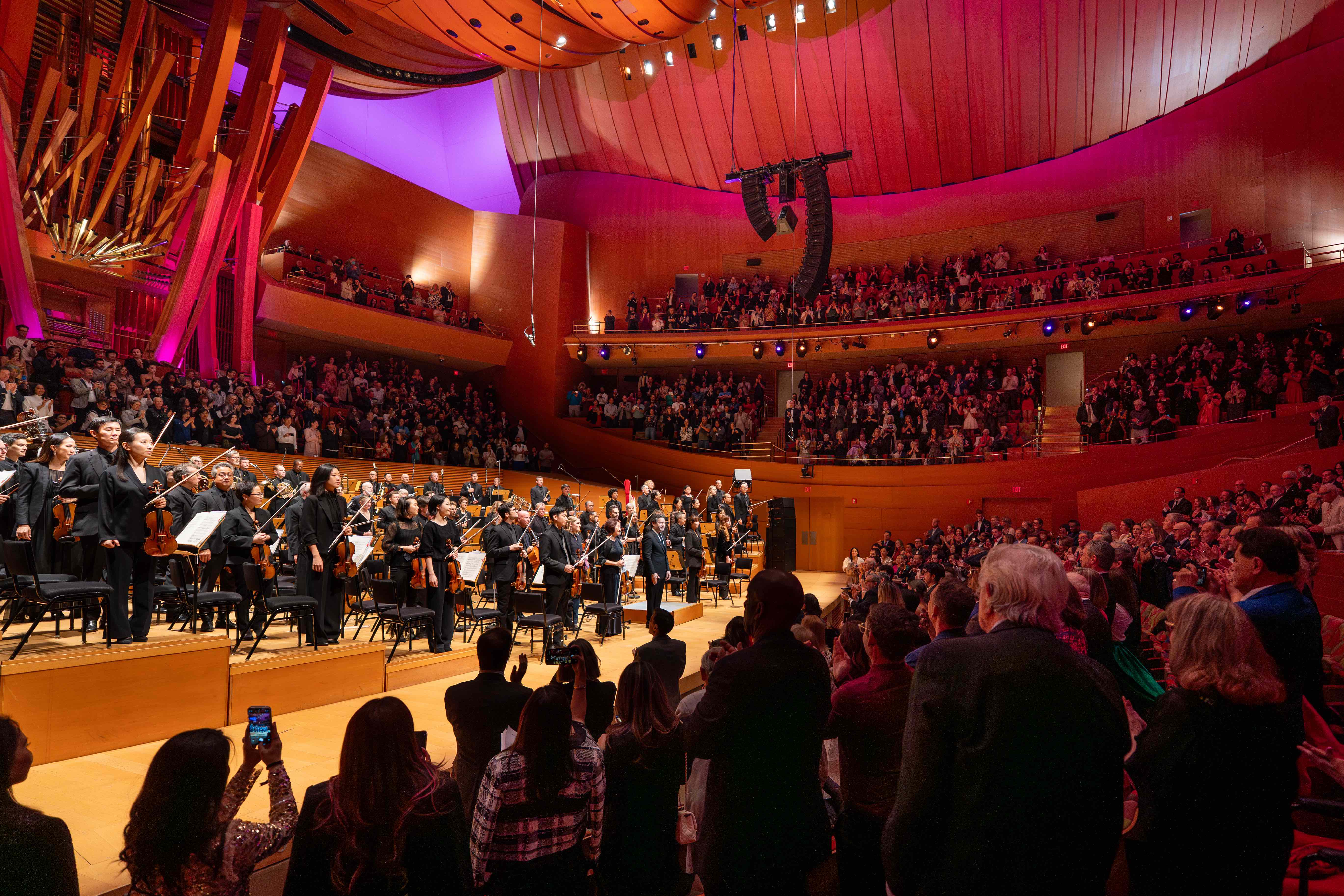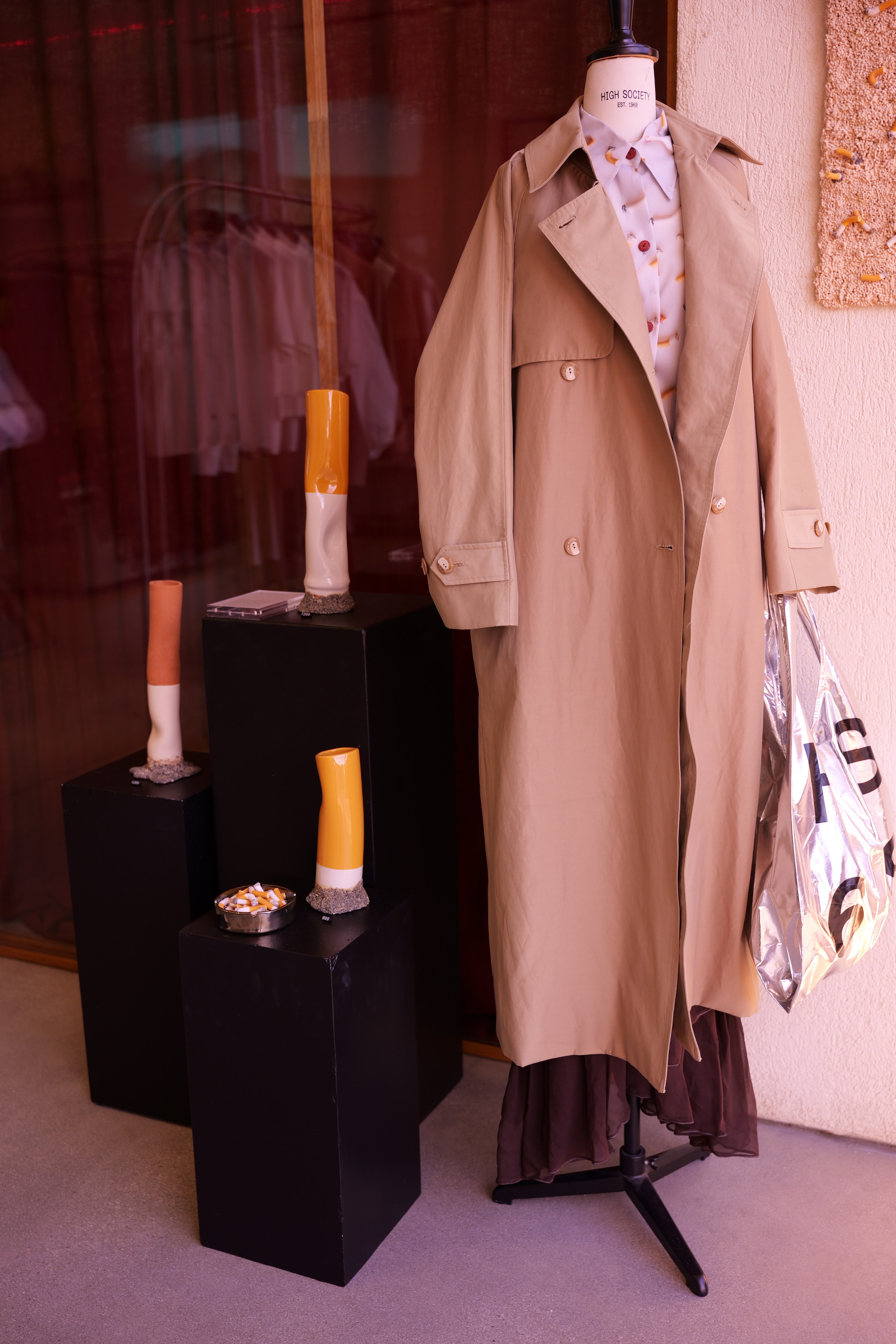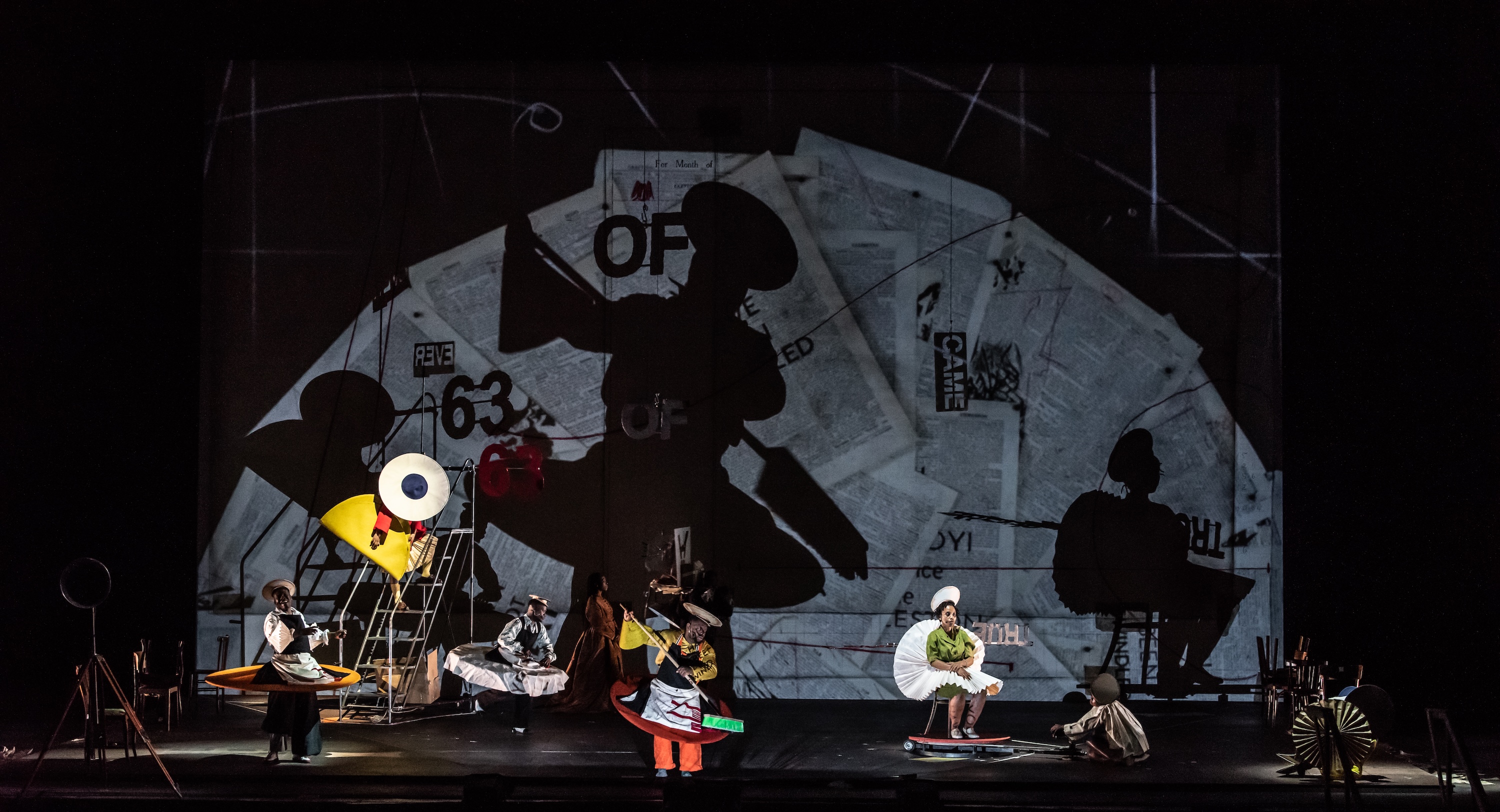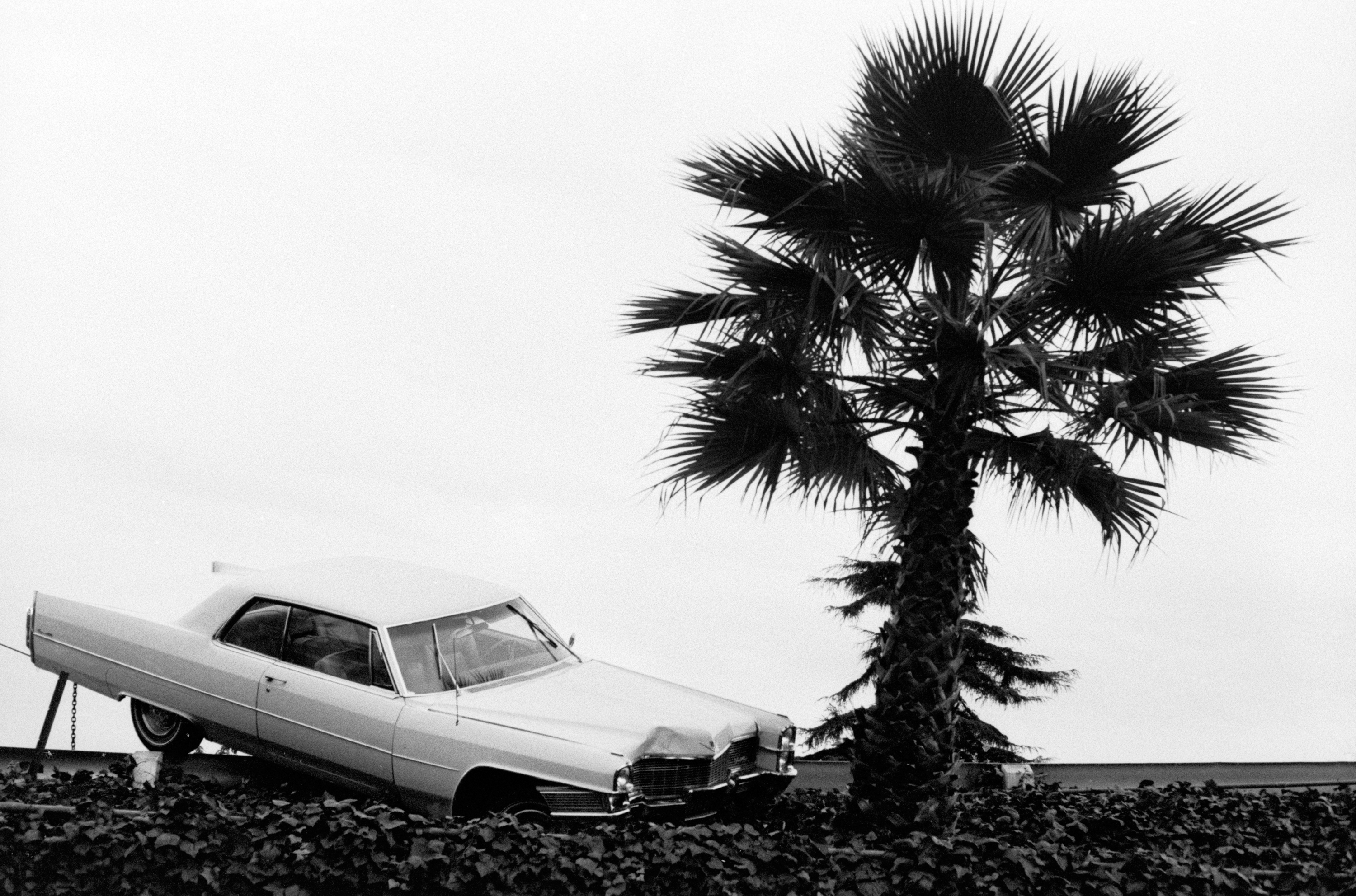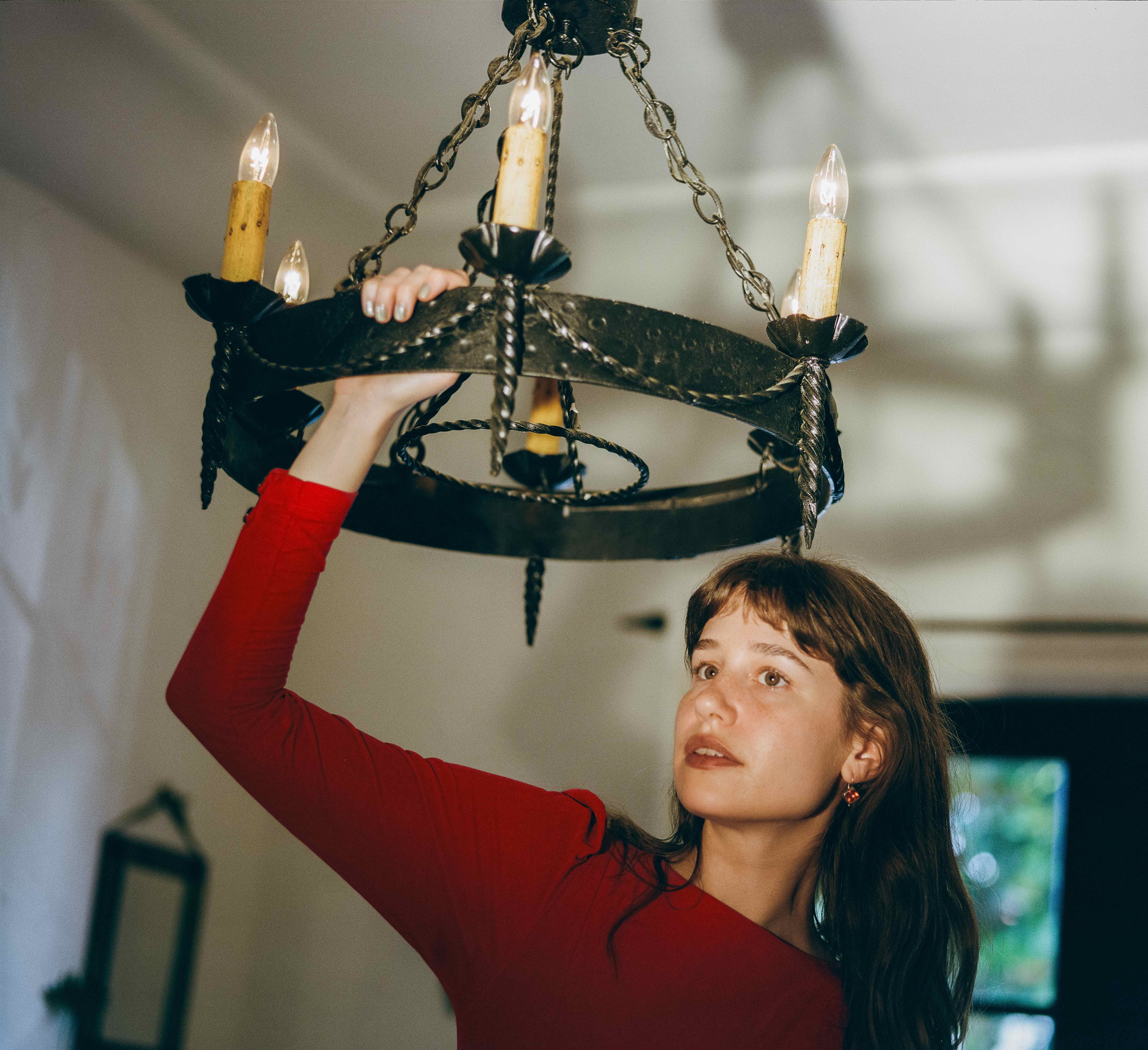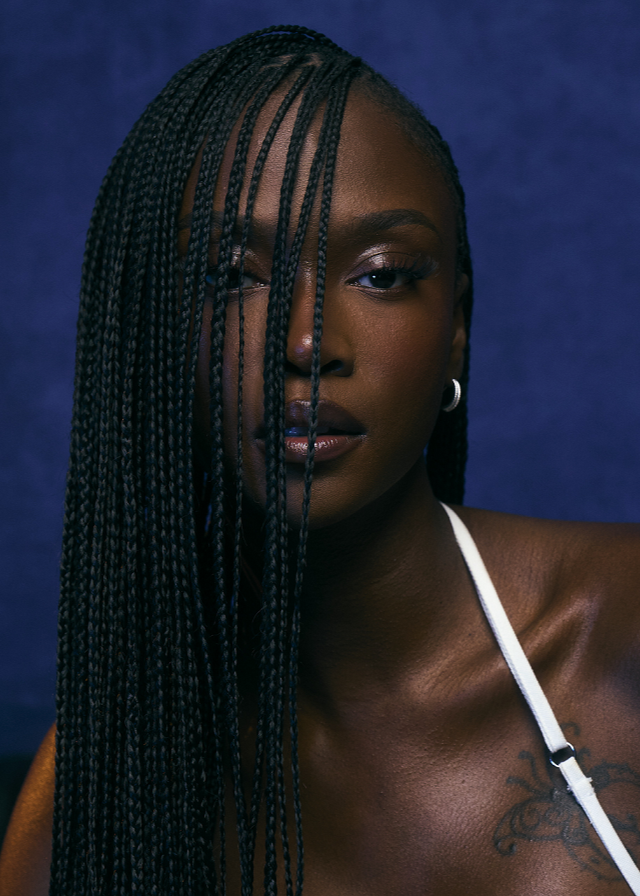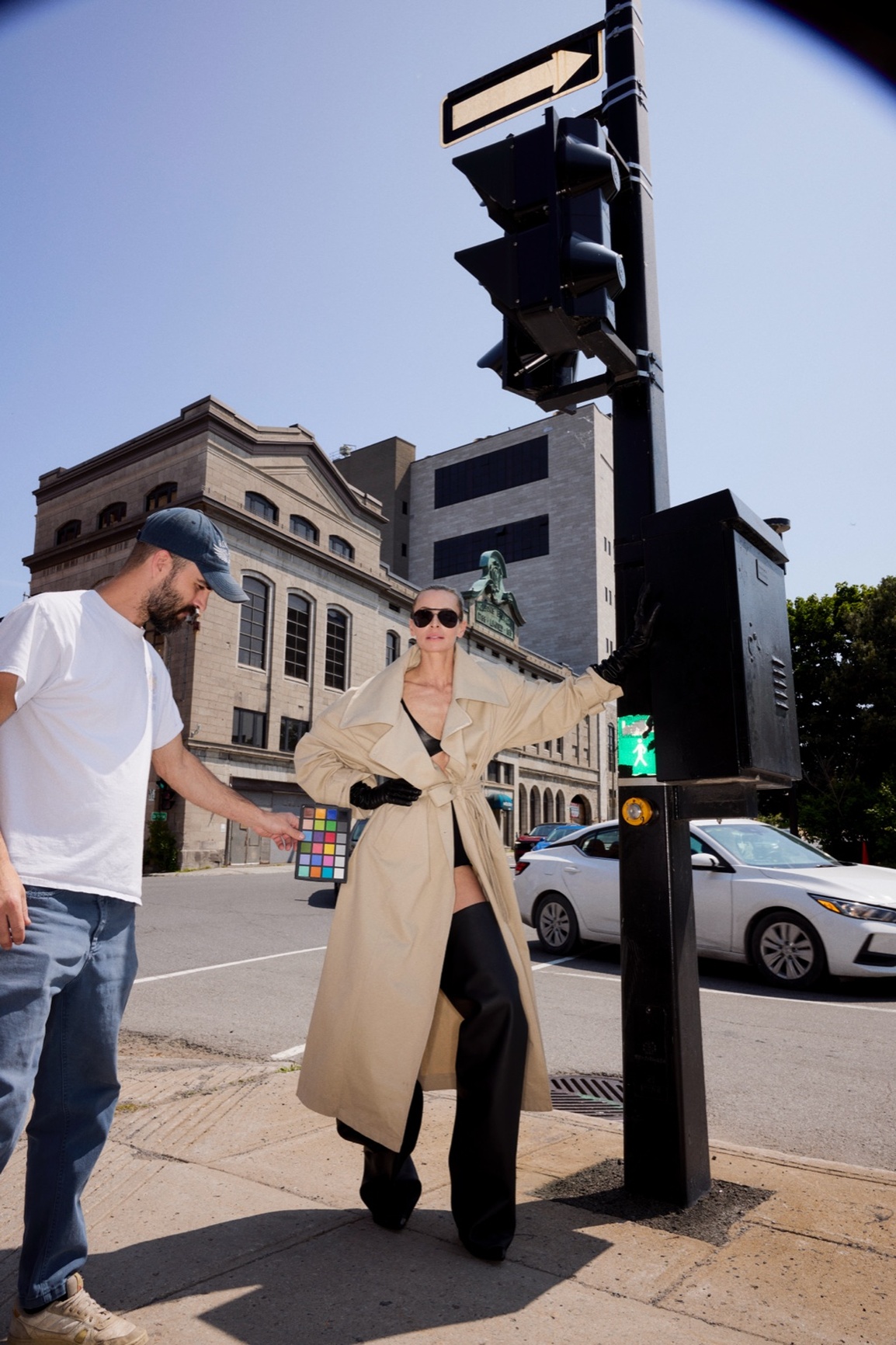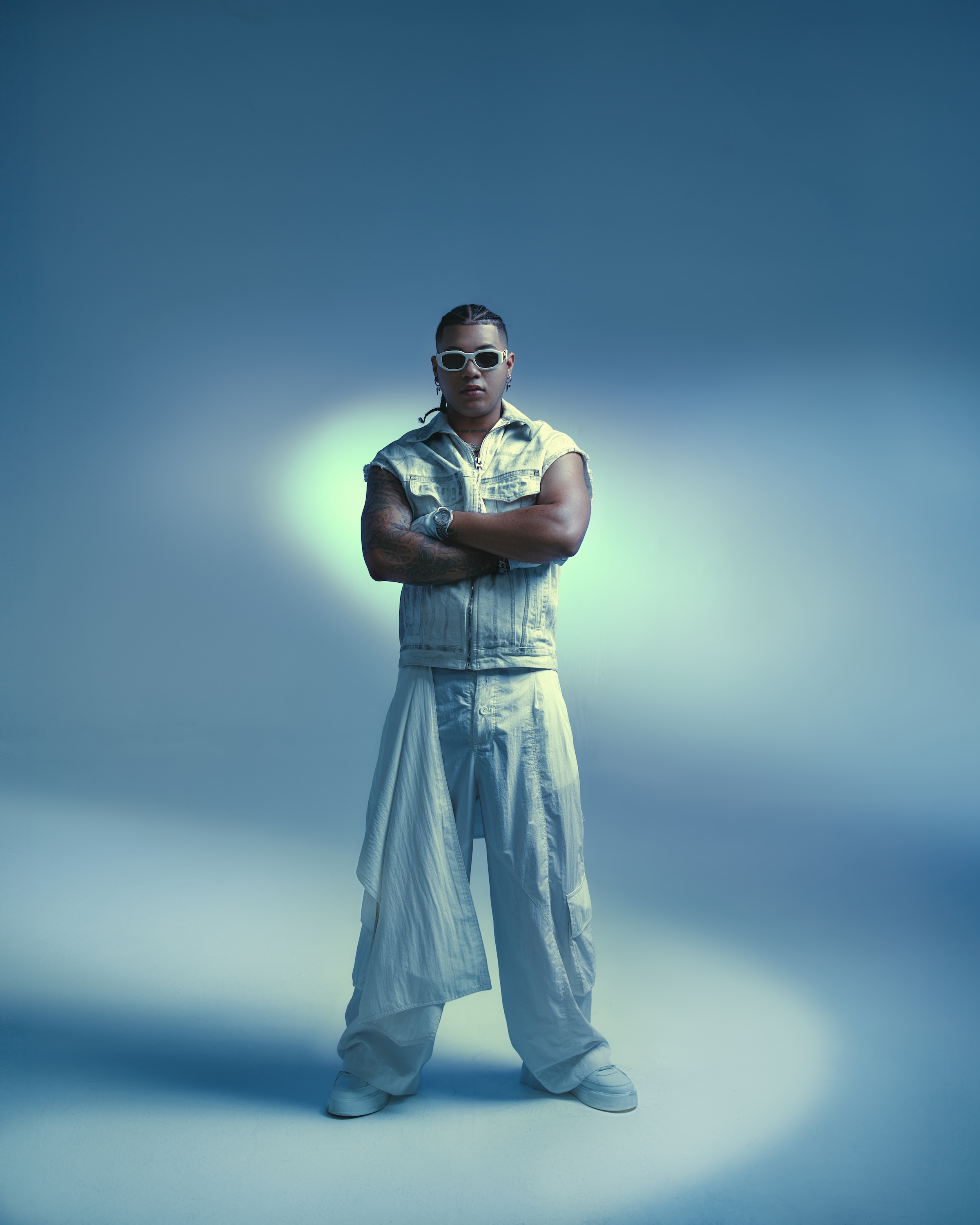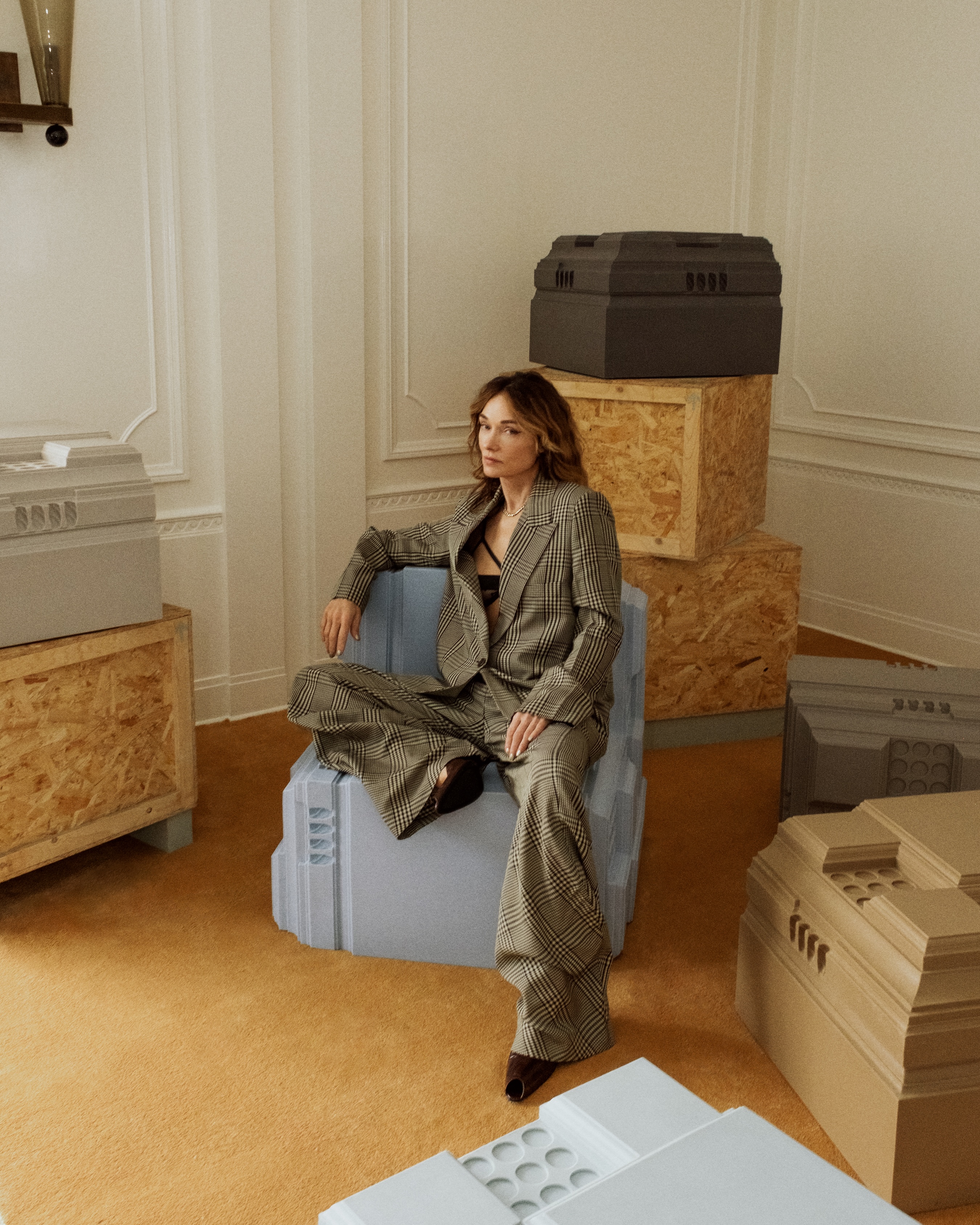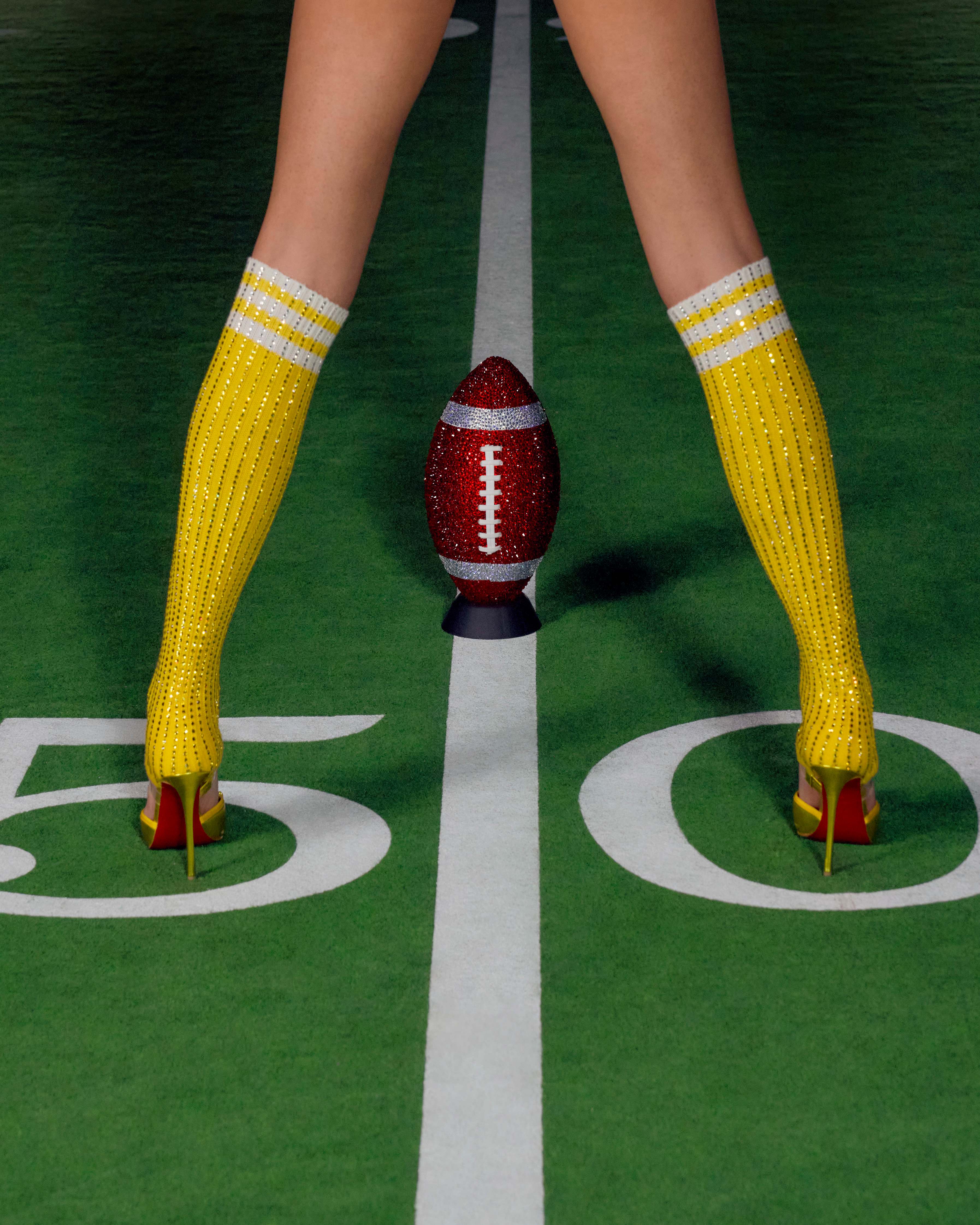

A beautiful weekday morning in Manhattan is the ideal time for a leisurely stroll towards SoHo’s Elizabeth Street Garden. Everything is pleasantly tranquil and undisturbed: sales clerks aimlessly move about the little shops down the street, neighborhood locals languidly walk their dogs while picking up a morning cup of joe. In the garden, I find the enchanting [Amaal Nuux](https://www.instagram.com/amaalnuux/) posing by tamed greenery — her soft skin glowing, her eyes glistening in the rays of sunlight. She smiles, “It’s gorgeous over here, isn’t it?”
Amaal is a Somali-Canadian singer from Toronto who crafts soulful R&B tunes, uncovering the depths of her fine-tuned voice. She is very much a self-made artist, following an independent career path and utilizing social media as a marking tool to propel her music in global stratospheres. The singer dropped her debut EP titled [**Black Dove**](https://music.youtube.com/playlist?list=OLAK5uy_kxYLJjXvTzP5xE-DKK9G8tZfNS085ib-8) on July 12th, opening up on themes of vulnerability, to develop healthier ideas about oneself and the world surrounding.
Amaal and I sit down at a cafe down the street and chat about her childhood, coming to terms with her path and the importance of giving back to communities.
**_Tell me about the most recent performance you did in Toronto with_** [**_Red Bull_**](https://www.youtube.com/watch?v=CSFn0GZsSQI)**_._**
It was beautiful! \[Red Bull\] came to me and wanted to support me, and the theme that I picked was my sisters. They are my best friends, my support system. Not all of them could be in the video, of course, but four of them were in the video and the whole concept was just this: my music goes to them first, they're my soundboard. They're the ones who are my guide in figuring out this life, so it only feels natural that I have my sisters there, in the performance, connecting with me and I'm connecting with them as well. That was really the whole concept for the set design. It was just my family that I needed in that space, and they were like, 'We're going to make this happen. It's going to be a beautiful, intimate experience with you and your loved ones.'


**_How has your passion developed into a full-blown career?_**
I’m Somali and my upbringing was in a conservative Muslim household, and it was a little bit strict, music was not something we played in our household. So, it has always been a bit difficult for me to even understand music because it wasn't in my household until I was in high school, listening to my friends' CD players, MP3, iPods —whatever was out then. I started to really love music and started singing, and it was something that I did just for me, to feel really good.
I realized I could make it into a career probably around high school. When I finished, I spent a year in Somalia living there, just being within the culture. I saw so much there that I started to feel like this connection to sing about, and that's where it all started for me — just expressing myself from that.
**_Your family emigrated to Canada when you were a child after the civil war broke out in Somalia in the early 90s. How was that experience of moving countries for you?_**
I was the last one to be born there. We came right after the war, and the rest of my family, sisters, were born in Canada. It was very difficult because we moved to Alabama first, and it was a very big culture shock for my mom. Such a different experience. And, of course, so many people back home were probably dying or not doing well: the state that everybody was in was not at all good, a lot of PTSD. It affected our family's migration — coming into Canada, eventually, as refugees — and it influenced my music.
The area that we ended up settling in was mostly people who shared some of those stories. It was mostly refugees, immigrants, and we all had this sense of connection; we were there to start a new life, to have a better future for our family and ourselves. It was like a family unit that turned into a loving, beautiful experience, and my music does get influenced by that because I do write a lot of stuff that's from that time as well. Not going to lie — I did too much of that, where I was writing too much about that experience. Now, it's about me being a woman.
**_What's your favorite childhood memory?_**
I have a big family: we are eight girls and two boys total, and we were like a football team. My best memories are the childhood experiences that we had together because, you know, we were young and we'd go and play soccer, and we'd have these beautiful experiences. When people saw us, they were like, 'Whoa, this is 10 kids together!' They were my everything, really. They were my best friends, my confidants that I went to. It was just going to the zoo, going to the amusement park and being able to have seven sisters that you can go to for any problems that you have really made me happy.
My other favorite memories are \[from the times when\] growing up because we were such a big family, we did a family meeting every second Sunday of the month: twice a month, we would get up in the morning, go make some lunch together, and then do a family meeting. We would sit down and talk to each person: 'How are you doing? How's life? Are you okay? What do you need help with?' We would assist each other and after that, we'd have a nice lunch. It was really beautiful. We just did one last Sunday because we didn't do one in a while — we’re all older now. It's my favorite thing.


**_Was your family always supportive of your career in music?_**
My dad was totally supportive — he's been around the world, he's very open. My mom was a little bit apprehensive — being a Muslim woman, it is a taboo, it's not looked good upon. Even when I first released my music, I had a lot of backlash from the community. People even within our own community — her family, her relatives — they were saying things like, 'You shouldn't be with this.' You know, kind of telling her how to act. She wanted to support me, but she also wanted to protect me from what these people were saying, so she was very conflicted until I started releasing my music.
Then I released my song Mufasa, the song that song talks about Somalia — what would she say to us if it was to have words? We've been through a lot, but we're also failing our people and our country. It was a song that did really well within the African community, people who've gone through a lot of oppression. When my mom heard that, that's when she realized and said, 'I don't care what anybody says. You're doing music for a bigger purpose, you're doing it with a message, and I support you.' Now, she’s more supportive now than anybody else.
**_You’ve recently traveled back to Somalia and worked in refugee camps there. Can you talk a bit more about that trip?_**
The biggest culture shock of my life, I felt so disconnected. I'm a Canadian girl and, although I'm Somali as well, I just didn't know where my identity lied. The ways of upbringing there are a little bit different, so it took me a while to adjust to it. I was really depressed, actually, for the first few weeks. But really, to be honest, I would say after one month I really started to enjoy it. What am I going to do, stay in a bad mood?!
When I opened my heart to connecting and enjoying it, whatever my life path was and at that time when I went there, wherever I was going, it completely turned me 360° to a different direction. Whoever I went there as, another girl came back; it was the most life-changing experience. People there are so resilient, they are hardworking, they appreciate life. The obstacles, they see them as blessings, and they're able to go and conquer them in a much better attitude than I've ever seen. Honestly, they were more spiritual and better than me; they were on a different spiritual level than I was, and they were in a different position. They didn't have proper food or proper clothing sometimes, but their attitude was way better than mine. I immediately had to check myself and say, 'Whoa, you need to change, you are spoiled almost.'
I also learned that Somali is a very poetic language. It's full of poetry, and we're called ‘the land of poets’, actually. I learned even more about my poetry connection there because it's almost like everybody speaks in poetry, it’s amazing. Another thing I learned was that the women there are the backbone of Somalia. If it was not for them, we wouldn't have been carried. They are the unit, the people who are so strong, and I remember just really admiring and appreciating that a lot. It really changed my life. If I didn't go, I don't know... we wouldn't be talking, I don't know what I would be doing. It was that big of a life-altering decision, life-changing moment for me.


**_How long did you stay there and what kinds of things did you do?_**
I was there for almost eight months, it was a long time. The first few weeks, I didn't want to go outside: I was so mad, I was like, 'Why did you bring me here?' And then eventually, I got comfortable. My uncle, he's a doctor there, and I used to work with him in the refugee camps and the IDP camps. See, this all changed my life — I'm going to these people, and we used to talk about raising awareness on a thing they do, FGM — it's female genital mutilation. We would talk about how it wasn't the right thing to do, it can injure the girl — just giving the education. We would go with pamphlets and talk to people because people don't know — they just think it's cultural, they're doing the best they can. So, we would educate them and let them know, and we were doing a really good job. And if he had to go treat a child somewhere, I'd come with him, that's what I did.
I became like a Somali girl in the end: I was wearing my full everything, I was speaking the language, I was adopted fully. When I was leaving I remember thinking, 'No, I don't want to go, I love it here now!' And I wanted to continue making the changes that we were doing as a community, with the people I was working with. That's when I came back and I did my music, I went to school for International Development Studies, and that's where it all started for me.
**_Tell me a bit about your creative process. How do you usually get inspiration for your songs and music videos, where do you start?_**
My creating is mostly melody-driven, I start with that. I like the beat to be very minimal, simple instruments, not too much — maybe one or two to give me space to express myself. A lot of my creative process does come from nature: I feel women and Mother Nature, we have so much in common — both are beautiful and admired, but also, there is a lot of exploitation and oppression, and taking it for granted. But in the end, it's still so resilient because the Earth, she doesn't need us, she'll survive without us. I feel women are like that: we are very strong and we are very resilient, whatever we go through. I connect with Mother Nature. With "Coming & Going" and "Not What I Thought", although I went through a tumultuous time in my relationship and when I was writing about that stuff, I didn't want to share a lot of it because I felt ashamed and because of how a lot of people viewed me as this strong woman.
My definition of strength was not strong. To be honest, it was almost like faking it. And then I realized that being strong is actually being vulnerable, owning the mistakes that you made — it's okay, there's nothing to be ashamed of. Once I started opening up in my music and being honest and putting my real self in it, all the creative, everything started to flood out. It was so weird! There was like a ‘block’ before because I wasn't opening up, I was doing a disservice to myself. Once I started talking about my relationship issues and I was in a place where I came to terms with an understanding of what I went through, I only wanted to be within nature — I feel like nature, the cycle of it is, is very similar to what we go through.
"Not What I Thought" \[was shot\] in Iceland, a place that's so majestic and beautiful. It's gone through so much, harsh weather situations but is still standing. I wanted to reclaim my power. "Coming & Going" is just about the transience of time, and how nothing is forever, and what's beautiful now is going to be gone tomorrow — appreciating the moment. The song is a little bit more about wanting an answer from the person you're with. Are you just here for the night, or for the moment? What do you want from me? It could be taken in whichever way the listener wants to take it.
**_Your EP,_** [**_Black Dove_**](https://amaal.lnk.to/BlackDove)**_, How was working on that for you?_**
My music before, it was about coming to the country, the things I saw, Somalia... The message was about being a refugee and being strong, finding your way in this world — it was more outwardly things, where I wasn't digging deep. With this process, I was like 'I have to open up more, I have to start being honest about the things I'm going through', and that's essentially what it was. It was like a journey, it felt like a restriction, I kept having to push and push. In one of the songs, [Later](https://www.youtube.com/watch?v=OmHftkSAQEw), I talk about how I was in a relationship, and the guy that I loved ended up going to jail and had to do eight months in jail.
It's the entire journey: I would take a bus and go visit him, and every weekend, I dedicated to being there for him to pick up his calls. And I never told anybody. My mom, nobody knew the story — I was so embarrassed and ashamed! My friends even — some of them knew, some didn't. I was in the studio one day, and I told the story, and I said, ‘I have to be honest, I have to tell the story because when I took that bus, what drove me was love and, love was overpowering everything. Forgiveness and reconciliation — he made a mistake, and it's okay.’ That's one of my favorite songs because it was my secret; it shares the journey of the bus and the women that I met. The video is going to show even the bus that I took, the journey to visit him. It was a really inspiring story for me.
**_Anything coming up that you’re really excited about?_**
All of it! I have the London show coming next Monday — that one I'm really excited about. For me, the thing that gets me really happy is being able to finally meet people who are listening to my music, the ones who are driving those numbers and following me. If there's anything I'm looking forward to, it's meeting them and just talking to them and connecting, just hugging them and saying 'thank you.' I'm going to be honest, everything else is great, but the people who support you are the most important. I'm really excited to meet them.


**_Where do you want to take your career next?_**
After I do all my shows and I do what I have to do, I plan on going back to LA. I have a lot of music, but I can't release it all. I'm releasing this EP, and I hope to release the next one in the next six months. I'm being really ambitious here and I hope I can make it happen. I want to go back and work on more music and release a new body of work.
Because I opened up in this last project that way, it felt like a faucet was open and everything came out, but I couldn't do it all in one project. Now, there are going to be more things that I'm going to share because I feel like I've lived multiple lives. I've been through so much in my life and I want to share it all. I want to be more open, and now I have amazing producers that I've always dreamt of working with. It's going to be awesome.
**_Are you going to make any other trips in the future, like the one you did to Somalia?_**
I love music, but I want to use it as a platform to work with non-profits because I've gone there for more than six months, I worked there. I did a lot of work with women in rural communities. I want to continue that work, 100%. It's my dream. And I want to tour Africa —Uganda, South Africa, Ghana, Nigeria, Kenya… I would love that!
* * *
Photography by: [John Parvin](https://www.instagram.com/johnxparvin/)
Written by: [Valerie Stepanova](https://www.instagram.com/valerie__stepanova/)
 
A beautiful weekday morning in Manhattan is the ideal time for a leisurely stroll towards SoHo’s Elizabeth Street Garden. Everything is pleasantly tranquil and undisturbed: sales clerks aimlessly move about the little shops down the street, neighborhood locals languidly walk their dogs while picking up a morning cup of joe. In the garden, I find the enchanting [Amaal Nuux](https://www.instagram.com/amaalnuux/) posing by tamed greenery — her soft skin glowing, her eyes glistening in the rays of sunlight. She smiles, “It’s gorgeous over here, isn’t it?”
Amaal is a Somali-Canadian singer from Toronto who crafts soulful R&B tunes, uncovering the depths of her fine-tuned voice. She is very much a self-made artist, following an independent career path and utilizing social media as a marking tool to propel her music in global stratospheres. The singer dropped her debut EP titled [**Black Dove**](https://music.youtube.com/playlist?list=OLAK5uy_kxYLJjXvTzP5xE-DKK9G8tZfNS085ib-8) on July 12th, opening up on themes of vulnerability, to develop healthier ideas about oneself and the world surrounding.
Amaal and I sit down at a cafe down the street and chat about her childhood, coming to terms with her path and the importance of giving back to communities.
**_Tell me about the most recent performance you did in Toronto with_** [**_Red Bull_**](https://www.youtube.com/watch?v=CSFn0GZsSQI)**_._**
It was beautiful! \[Red Bull\] came to me and wanted to support me, and the theme that I picked was my sisters. They are my best friends, my support system. Not all of them could be in the video, of course, but four of them were in the video and the whole concept was just this: my music goes to them first, they're my soundboard. They're the ones who are my guide in figuring out this life, so it only feels natural that I have my sisters there, in the performance, connecting with me and I'm connecting with them as well. That was really the whole concept for the set design. It was just my family that I needed in that space, and they were like, 'We're going to make this happen. It's going to be a beautiful, intimate experience with you and your loved ones.'

A beautiful weekday morning in Manhattan is the ideal time for a leisurely stroll towards SoHo’s Elizabeth Street Garden. Everything is pleasantly tranquil and undisturbed: sales clerks aimlessly move about the little shops down the street, neighborhood locals languidly walk their dogs while picking up a morning cup of joe. In the garden, I find the enchanting [Amaal Nuux](https://www.instagram.com/amaalnuux/) posing by tamed greenery — her soft skin glowing, her eyes glistening in the rays of sunlight. She smiles, “It’s gorgeous over here, isn’t it?”
Amaal is a Somali-Canadian singer from Toronto who crafts soulful R&B tunes, uncovering the depths of her fine-tuned voice. She is very much a self-made artist, following an independent career path and utilizing social media as a marking tool to propel her music in global stratospheres. The singer dropped her debut EP titled [**Black Dove**](https://music.youtube.com/playlist?list=OLAK5uy_kxYLJjXvTzP5xE-DKK9G8tZfNS085ib-8) on July 12th, opening up on themes of vulnerability, to develop healthier ideas about oneself and the world surrounding.
Amaal and I sit down at a cafe down the street and chat about her childhood, coming to terms with her path and the importance of giving back to communities.
**_Tell me about the most recent performance you did in Toronto with_** [**_Red Bull_**](https://www.youtube.com/watch?v=CSFn0GZsSQI)**_._**
It was beautiful! \[Red Bull\] came to me and wanted to support me, and the theme that I picked was my sisters. They are my best friends, my support system. Not all of them could be in the video, of course, but four of them were in the video and the whole concept was just this: my music goes to them first, they're my soundboard. They're the ones who are my guide in figuring out this life, so it only feels natural that I have my sisters there, in the performance, connecting with me and I'm connecting with them as well. That was really the whole concept for the set design. It was just my family that I needed in that space, and they were like, 'We're going to make this happen. It's going to be a beautiful, intimate experience with you and your loved ones.'
 
**_How has your passion developed into a full-blown career?_**
I’m Somali and my upbringing was in a conservative Muslim household, and it was a little bit strict, music was not something we played in our household. So, it has always been a bit difficult for me to even understand music because it wasn't in my household until I was in high school, listening to my friends' CD players, MP3, iPods —whatever was out then. I started to really love music and started singing, and it was something that I did just for me, to feel really good.
I realized I could make it into a career probably around high school. When I finished, I spent a year in Somalia living there, just being within the culture. I saw so much there that I started to feel like this connection to sing about, and that's where it all started for me — just expressing myself from that.
**_Your family emigrated to Canada when you were a child after the civil war broke out in Somalia in the early 90s. How was that experience of moving countries for you?_**
I was the last one to be born there. We came right after the war, and the rest of my family, sisters, were born in Canada. It was very difficult because we moved to Alabama first, and it was a very big culture shock for my mom. Such a different experience. And, of course, so many people back home were probably dying or not doing well: the state that everybody was in was not at all good, a lot of PTSD. It affected our family's migration — coming into Canada, eventually, as refugees — and it influenced my music.
The area that we ended up settling in was mostly people who shared some of those stories. It was mostly refugees, immigrants, and we all had this sense of connection; we were there to start a new life, to have a better future for our family and ourselves. It was like a family unit that turned into a loving, beautiful experience, and my music does get influenced by that because I do write a lot of stuff that's from that time as well. Not going to lie — I did too much of that, where I was writing too much about that experience. Now, it's about me being a woman.
**_What's your favorite childhood memory?_**
I have a big family: we are eight girls and two boys total, and we were like a football team. My best memories are the childhood experiences that we had together because, you know, we were young and we'd go and play soccer, and we'd have these beautiful experiences. When people saw us, they were like, 'Whoa, this is 10 kids together!' They were my everything, really. They were my best friends, my confidants that I went to. It was just going to the zoo, going to the amusement park and being able to have seven sisters that you can go to for any problems that you have really made me happy.
My other favorite memories are \[from the times when\] growing up because we were such a big family, we did a family meeting every second Sunday of the month: twice a month, we would get up in the morning, go make some lunch together, and then do a family meeting. We would sit down and talk to each person: 'How are you doing? How's life? Are you okay? What do you need help with?' We would assist each other and after that, we'd have a nice lunch. It was really beautiful. We just did one last Sunday because we didn't do one in a while — we’re all older now. It's my favorite thing.

**_How has your passion developed into a full-blown career?_**
I’m Somali and my upbringing was in a conservative Muslim household, and it was a little bit strict, music was not something we played in our household. So, it has always been a bit difficult for me to even understand music because it wasn't in my household until I was in high school, listening to my friends' CD players, MP3, iPods —whatever was out then. I started to really love music and started singing, and it was something that I did just for me, to feel really good.
I realized I could make it into a career probably around high school. When I finished, I spent a year in Somalia living there, just being within the culture. I saw so much there that I started to feel like this connection to sing about, and that's where it all started for me — just expressing myself from that.
**_Your family emigrated to Canada when you were a child after the civil war broke out in Somalia in the early 90s. How was that experience of moving countries for you?_**
I was the last one to be born there. We came right after the war, and the rest of my family, sisters, were born in Canada. It was very difficult because we moved to Alabama first, and it was a very big culture shock for my mom. Such a different experience. And, of course, so many people back home were probably dying or not doing well: the state that everybody was in was not at all good, a lot of PTSD. It affected our family's migration — coming into Canada, eventually, as refugees — and it influenced my music.
The area that we ended up settling in was mostly people who shared some of those stories. It was mostly refugees, immigrants, and we all had this sense of connection; we were there to start a new life, to have a better future for our family and ourselves. It was like a family unit that turned into a loving, beautiful experience, and my music does get influenced by that because I do write a lot of stuff that's from that time as well. Not going to lie — I did too much of that, where I was writing too much about that experience. Now, it's about me being a woman.
**_What's your favorite childhood memory?_**
I have a big family: we are eight girls and two boys total, and we were like a football team. My best memories are the childhood experiences that we had together because, you know, we were young and we'd go and play soccer, and we'd have these beautiful experiences. When people saw us, they were like, 'Whoa, this is 10 kids together!' They were my everything, really. They were my best friends, my confidants that I went to. It was just going to the zoo, going to the amusement park and being able to have seven sisters that you can go to for any problems that you have really made me happy.
My other favorite memories are \[from the times when\] growing up because we were such a big family, we did a family meeting every second Sunday of the month: twice a month, we would get up in the morning, go make some lunch together, and then do a family meeting. We would sit down and talk to each person: 'How are you doing? How's life? Are you okay? What do you need help with?' We would assist each other and after that, we'd have a nice lunch. It was really beautiful. We just did one last Sunday because we didn't do one in a while — we’re all older now. It's my favorite thing.
 
**_Was your family always supportive of your career in music?_**
My dad was totally supportive — he's been around the world, he's very open. My mom was a little bit apprehensive — being a Muslim woman, it is a taboo, it's not looked good upon. Even when I first released my music, I had a lot of backlash from the community. People even within our own community — her family, her relatives — they were saying things like, 'You shouldn't be with this.' You know, kind of telling her how to act. She wanted to support me, but she also wanted to protect me from what these people were saying, so she was very conflicted until I started releasing my music.
Then I released my song Mufasa, the song that song talks about Somalia — what would she say to us if it was to have words? We've been through a lot, but we're also failing our people and our country. It was a song that did really well within the African community, people who've gone through a lot of oppression. When my mom heard that, that's when she realized and said, 'I don't care what anybody says. You're doing music for a bigger purpose, you're doing it with a message, and I support you.' Now, she’s more supportive now than anybody else.
**_You’ve recently traveled back to Somalia and worked in refugee camps there. Can you talk a bit more about that trip?_**
The biggest culture shock of my life, I felt so disconnected. I'm a Canadian girl and, although I'm Somali as well, I just didn't know where my identity lied. The ways of upbringing there are a little bit different, so it took me a while to adjust to it. I was really depressed, actually, for the first few weeks. But really, to be honest, I would say after one month I really started to enjoy it. What am I going to do, stay in a bad mood?!
When I opened my heart to connecting and enjoying it, whatever my life path was and at that time when I went there, wherever I was going, it completely turned me 360° to a different direction. Whoever I went there as, another girl came back; it was the most life-changing experience. People there are so resilient, they are hardworking, they appreciate life. The obstacles, they see them as blessings, and they're able to go and conquer them in a much better attitude than I've ever seen. Honestly, they were more spiritual and better than me; they were on a different spiritual level than I was, and they were in a different position. They didn't have proper food or proper clothing sometimes, but their attitude was way better than mine. I immediately had to check myself and say, 'Whoa, you need to change, you are spoiled almost.'
I also learned that Somali is a very poetic language. It's full of poetry, and we're called ‘the land of poets’, actually. I learned even more about my poetry connection there because it's almost like everybody speaks in poetry, it’s amazing. Another thing I learned was that the women there are the backbone of Somalia. If it was not for them, we wouldn't have been carried. They are the unit, the people who are so strong, and I remember just really admiring and appreciating that a lot. It really changed my life. If I didn't go, I don't know... we wouldn't be talking, I don't know what I would be doing. It was that big of a life-altering decision, life-changing moment for me.

**_Was your family always supportive of your career in music?_**
My dad was totally supportive — he's been around the world, he's very open. My mom was a little bit apprehensive — being a Muslim woman, it is a taboo, it's not looked good upon. Even when I first released my music, I had a lot of backlash from the community. People even within our own community — her family, her relatives — they were saying things like, 'You shouldn't be with this.' You know, kind of telling her how to act. She wanted to support me, but she also wanted to protect me from what these people were saying, so she was very conflicted until I started releasing my music.
Then I released my song Mufasa, the song that song talks about Somalia — what would she say to us if it was to have words? We've been through a lot, but we're also failing our people and our country. It was a song that did really well within the African community, people who've gone through a lot of oppression. When my mom heard that, that's when she realized and said, 'I don't care what anybody says. You're doing music for a bigger purpose, you're doing it with a message, and I support you.' Now, she’s more supportive now than anybody else.
**_You’ve recently traveled back to Somalia and worked in refugee camps there. Can you talk a bit more about that trip?_**
The biggest culture shock of my life, I felt so disconnected. I'm a Canadian girl and, although I'm Somali as well, I just didn't know where my identity lied. The ways of upbringing there are a little bit different, so it took me a while to adjust to it. I was really depressed, actually, for the first few weeks. But really, to be honest, I would say after one month I really started to enjoy it. What am I going to do, stay in a bad mood?!
When I opened my heart to connecting and enjoying it, whatever my life path was and at that time when I went there, wherever I was going, it completely turned me 360° to a different direction. Whoever I went there as, another girl came back; it was the most life-changing experience. People there are so resilient, they are hardworking, they appreciate life. The obstacles, they see them as blessings, and they're able to go and conquer them in a much better attitude than I've ever seen. Honestly, they were more spiritual and better than me; they were on a different spiritual level than I was, and they were in a different position. They didn't have proper food or proper clothing sometimes, but their attitude was way better than mine. I immediately had to check myself and say, 'Whoa, you need to change, you are spoiled almost.'
I also learned that Somali is a very poetic language. It's full of poetry, and we're called ‘the land of poets’, actually. I learned even more about my poetry connection there because it's almost like everybody speaks in poetry, it’s amazing. Another thing I learned was that the women there are the backbone of Somalia. If it was not for them, we wouldn't have been carried. They are the unit, the people who are so strong, and I remember just really admiring and appreciating that a lot. It really changed my life. If I didn't go, I don't know... we wouldn't be talking, I don't know what I would be doing. It was that big of a life-altering decision, life-changing moment for me.
 
**_How long did you stay there and what kinds of things did you do?_**
I was there for almost eight months, it was a long time. The first few weeks, I didn't want to go outside: I was so mad, I was like, 'Why did you bring me here?' And then eventually, I got comfortable. My uncle, he's a doctor there, and I used to work with him in the refugee camps and the IDP camps. See, this all changed my life — I'm going to these people, and we used to talk about raising awareness on a thing they do, FGM — it's female genital mutilation. We would talk about how it wasn't the right thing to do, it can injure the girl — just giving the education. We would go with pamphlets and talk to people because people don't know — they just think it's cultural, they're doing the best they can. So, we would educate them and let them know, and we were doing a really good job. And if he had to go treat a child somewhere, I'd come with him, that's what I did.
I became like a Somali girl in the end: I was wearing my full everything, I was speaking the language, I was adopted fully. When I was leaving I remember thinking, 'No, I don't want to go, I love it here now!' And I wanted to continue making the changes that we were doing as a community, with the people I was working with. That's when I came back and I did my music, I went to school for International Development Studies, and that's where it all started for me.
**_Tell me a bit about your creative process. How do you usually get inspiration for your songs and music videos, where do you start?_**
My creating is mostly melody-driven, I start with that. I like the beat to be very minimal, simple instruments, not too much — maybe one or two to give me space to express myself. A lot of my creative process does come from nature: I feel women and Mother Nature, we have so much in common — both are beautiful and admired, but also, there is a lot of exploitation and oppression, and taking it for granted. But in the end, it's still so resilient because the Earth, she doesn't need us, she'll survive without us. I feel women are like that: we are very strong and we are very resilient, whatever we go through. I connect with Mother Nature. With "Coming & Going" and "Not What I Thought", although I went through a tumultuous time in my relationship and when I was writing about that stuff, I didn't want to share a lot of it because I felt ashamed and because of how a lot of people viewed me as this strong woman.
My definition of strength was not strong. To be honest, it was almost like faking it. And then I realized that being strong is actually being vulnerable, owning the mistakes that you made — it's okay, there's nothing to be ashamed of. Once I started opening up in my music and being honest and putting my real self in it, all the creative, everything started to flood out. It was so weird! There was like a ‘block’ before because I wasn't opening up, I was doing a disservice to myself. Once I started talking about my relationship issues and I was in a place where I came to terms with an understanding of what I went through, I only wanted to be within nature — I feel like nature, the cycle of it is, is very similar to what we go through.
"Not What I Thought" \[was shot\] in Iceland, a place that's so majestic and beautiful. It's gone through so much, harsh weather situations but is still standing. I wanted to reclaim my power. "Coming & Going" is just about the transience of time, and how nothing is forever, and what's beautiful now is going to be gone tomorrow — appreciating the moment. The song is a little bit more about wanting an answer from the person you're with. Are you just here for the night, or for the moment? What do you want from me? It could be taken in whichever way the listener wants to take it.
**_Your EP,_** [**_Black Dove_**](https://amaal.lnk.to/BlackDove)**_, How was working on that for you?_**
My music before, it was about coming to the country, the things I saw, Somalia... The message was about being a refugee and being strong, finding your way in this world — it was more outwardly things, where I wasn't digging deep. With this process, I was like 'I have to open up more, I have to start being honest about the things I'm going through', and that's essentially what it was. It was like a journey, it felt like a restriction, I kept having to push and push. In one of the songs, [Later](https://www.youtube.com/watch?v=OmHftkSAQEw), I talk about how I was in a relationship, and the guy that I loved ended up going to jail and had to do eight months in jail.
It's the entire journey: I would take a bus and go visit him, and every weekend, I dedicated to being there for him to pick up his calls. And I never told anybody. My mom, nobody knew the story — I was so embarrassed and ashamed! My friends even — some of them knew, some didn't. I was in the studio one day, and I told the story, and I said, ‘I have to be honest, I have to tell the story because when I took that bus, what drove me was love and, love was overpowering everything. Forgiveness and reconciliation — he made a mistake, and it's okay.’ That's one of my favorite songs because it was my secret; it shares the journey of the bus and the women that I met. The video is going to show even the bus that I took, the journey to visit him. It was a really inspiring story for me.
**_Anything coming up that you’re really excited about?_**
All of it! I have the London show coming next Monday — that one I'm really excited about. For me, the thing that gets me really happy is being able to finally meet people who are listening to my music, the ones who are driving those numbers and following me. If there's anything I'm looking forward to, it's meeting them and just talking to them and connecting, just hugging them and saying 'thank you.' I'm going to be honest, everything else is great, but the people who support you are the most important. I'm really excited to meet them.

**_How long did you stay there and what kinds of things did you do?_**
I was there for almost eight months, it was a long time. The first few weeks, I didn't want to go outside: I was so mad, I was like, 'Why did you bring me here?' And then eventually, I got comfortable. My uncle, he's a doctor there, and I used to work with him in the refugee camps and the IDP camps. See, this all changed my life — I'm going to these people, and we used to talk about raising awareness on a thing they do, FGM — it's female genital mutilation. We would talk about how it wasn't the right thing to do, it can injure the girl — just giving the education. We would go with pamphlets and talk to people because people don't know — they just think it's cultural, they're doing the best they can. So, we would educate them and let them know, and we were doing a really good job. And if he had to go treat a child somewhere, I'd come with him, that's what I did.
I became like a Somali girl in the end: I was wearing my full everything, I was speaking the language, I was adopted fully. When I was leaving I remember thinking, 'No, I don't want to go, I love it here now!' And I wanted to continue making the changes that we were doing as a community, with the people I was working with. That's when I came back and I did my music, I went to school for International Development Studies, and that's where it all started for me.
**_Tell me a bit about your creative process. How do you usually get inspiration for your songs and music videos, where do you start?_**
My creating is mostly melody-driven, I start with that. I like the beat to be very minimal, simple instruments, not too much — maybe one or two to give me space to express myself. A lot of my creative process does come from nature: I feel women and Mother Nature, we have so much in common — both are beautiful and admired, but also, there is a lot of exploitation and oppression, and taking it for granted. But in the end, it's still so resilient because the Earth, she doesn't need us, she'll survive without us. I feel women are like that: we are very strong and we are very resilient, whatever we go through. I connect with Mother Nature. With "Coming & Going" and "Not What I Thought", although I went through a tumultuous time in my relationship and when I was writing about that stuff, I didn't want to share a lot of it because I felt ashamed and because of how a lot of people viewed me as this strong woman.
My definition of strength was not strong. To be honest, it was almost like faking it. And then I realized that being strong is actually being vulnerable, owning the mistakes that you made — it's okay, there's nothing to be ashamed of. Once I started opening up in my music and being honest and putting my real self in it, all the creative, everything started to flood out. It was so weird! There was like a ‘block’ before because I wasn't opening up, I was doing a disservice to myself. Once I started talking about my relationship issues and I was in a place where I came to terms with an understanding of what I went through, I only wanted to be within nature — I feel like nature, the cycle of it is, is very similar to what we go through.
"Not What I Thought" \[was shot\] in Iceland, a place that's so majestic and beautiful. It's gone through so much, harsh weather situations but is still standing. I wanted to reclaim my power. "Coming & Going" is just about the transience of time, and how nothing is forever, and what's beautiful now is going to be gone tomorrow — appreciating the moment. The song is a little bit more about wanting an answer from the person you're with. Are you just here for the night, or for the moment? What do you want from me? It could be taken in whichever way the listener wants to take it.
**_Your EP,_** [**_Black Dove_**](https://amaal.lnk.to/BlackDove)**_, How was working on that for you?_**
My music before, it was about coming to the country, the things I saw, Somalia... The message was about being a refugee and being strong, finding your way in this world — it was more outwardly things, where I wasn't digging deep. With this process, I was like 'I have to open up more, I have to start being honest about the things I'm going through', and that's essentially what it was. It was like a journey, it felt like a restriction, I kept having to push and push. In one of the songs, [Later](https://www.youtube.com/watch?v=OmHftkSAQEw), I talk about how I was in a relationship, and the guy that I loved ended up going to jail and had to do eight months in jail.
It's the entire journey: I would take a bus and go visit him, and every weekend, I dedicated to being there for him to pick up his calls. And I never told anybody. My mom, nobody knew the story — I was so embarrassed and ashamed! My friends even — some of them knew, some didn't. I was in the studio one day, and I told the story, and I said, ‘I have to be honest, I have to tell the story because when I took that bus, what drove me was love and, love was overpowering everything. Forgiveness and reconciliation — he made a mistake, and it's okay.’ That's one of my favorite songs because it was my secret; it shares the journey of the bus and the women that I met. The video is going to show even the bus that I took, the journey to visit him. It was a really inspiring story for me.
**_Anything coming up that you’re really excited about?_**
All of it! I have the London show coming next Monday — that one I'm really excited about. For me, the thing that gets me really happy is being able to finally meet people who are listening to my music, the ones who are driving those numbers and following me. If there's anything I'm looking forward to, it's meeting them and just talking to them and connecting, just hugging them and saying 'thank you.' I'm going to be honest, everything else is great, but the people who support you are the most important. I'm really excited to meet them.
 
**_Where do you want to take your career next?_**
After I do all my shows and I do what I have to do, I plan on going back to LA. I have a lot of music, but I can't release it all. I'm releasing this EP, and I hope to release the next one in the next six months. I'm being really ambitious here and I hope I can make it happen. I want to go back and work on more music and release a new body of work.
Because I opened up in this last project that way, it felt like a faucet was open and everything came out, but I couldn't do it all in one project. Now, there are going to be more things that I'm going to share because I feel like I've lived multiple lives. I've been through so much in my life and I want to share it all. I want to be more open, and now I have amazing producers that I've always dreamt of working with. It's going to be awesome.
**_Are you going to make any other trips in the future, like the one you did to Somalia?_**
I love music, but I want to use it as a platform to work with non-profits because I've gone there for more than six months, I worked there. I did a lot of work with women in rural communities. I want to continue that work, 100%. It's my dream. And I want to tour Africa —Uganda, South Africa, Ghana, Nigeria, Kenya… I would love that!
* * *
Photography by: [John Parvin](https://www.instagram.com/johnxparvin/)
Written by: [Valerie Stepanova](https://www.instagram.com/valerie__stepanova/)

**_Where do you want to take your career next?_**
After I do all my shows and I do what I have to do, I plan on going back to LA. I have a lot of music, but I can't release it all. I'm releasing this EP, and I hope to release the next one in the next six months. I'm being really ambitious here and I hope I can make it happen. I want to go back and work on more music and release a new body of work.
Because I opened up in this last project that way, it felt like a faucet was open and everything came out, but I couldn't do it all in one project. Now, there are going to be more things that I'm going to share because I feel like I've lived multiple lives. I've been through so much in my life and I want to share it all. I want to be more open, and now I have amazing producers that I've always dreamt of working with. It's going to be awesome.
**_Are you going to make any other trips in the future, like the one you did to Somalia?_**
I love music, but I want to use it as a platform to work with non-profits because I've gone there for more than six months, I worked there. I did a lot of work with women in rural communities. I want to continue that work, 100%. It's my dream. And I want to tour Africa —Uganda, South Africa, Ghana, Nigeria, Kenya… I would love that!
* * *
Photography by: [John Parvin](https://www.instagram.com/johnxparvin/)
Written by: [Valerie Stepanova](https://www.instagram.com/valerie__stepanova/)
